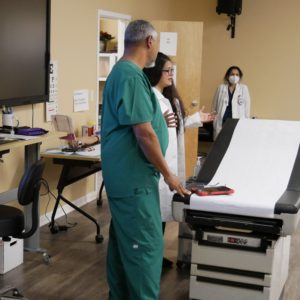Letter from Provost
In a follow-up to my most recent post, I wanted to bring to the attention of our student body the on-going dialogue and consideration of converting the USMLE exam to a pass/fail score.
As noted in the accompanying viewpoint/opinion article from JAMA: July 19, 2019, “the official purpose of the examination is to assist state authorities in granting medical licenses, but it also reassures various groups ….. that licensed physicians have attained a minimum standard of medical knowledge.”
Currently, these examinations (Step 1, Step2 Clinical Knowledge, and Step 3) are reported in a 3 digit format. As Swalis et al. reports: “The federation of State Medical Boards and National Board of Medical Examiners has released joint preliminary recommendations, which suggest consideration of a move to pass-fail score reporting.”
Of particular importance to our AUIS student body, the article states: “Application inflation is especially prominent for programs evaluating international medical graduates, who fill approximately 20% of position in US residency programs. To manage this volume, program directors use filters in the Electronic Residency Application Service. Filters exclude application below a requested standard, leaving fewer to be evaluated.
Interestingly enough, Swalis states:” the narrow differences in examination scores used by some program to exclude many applicants are arbitrary with neither clinical, nor statistical meaning.”
Changing the USMLE exam to a pass-fail score would require residency program directors to utilize other criteria to adequately assess a student’s candidacy for residency? Swalis rightfully points out, “programs might identify outstanding applicants who would have been overlooked based on a numerical cutoff”
It is well known, that medical students seeking residencies in much sought-after high demand programs are selected based on higher USMLE scores. In particular, neurosurgery, plastic surgery, dermatology, radiology, and emergency medicine are very difficult to match- in because of their popularity.
Of particular concern, Swalis states: “solitary test preparation, which is inconsistent with the important skill of collaborative patient care, can replace class attendance. Some students become isolated from each other and potential faculty mentors. They may focus exclusively on testable material. The stakes could be higher for international medical graduates, who may not match in US-based residency programs without exceptional scores.”
As many of our AUIS students come from backgrounds that are already underrepresented in medicine, potentially resulting in a significant lack of diversity in competitive postgraduate specialties. As reported by Swalis: ”evidence suggests the USMLE may exhibit bias against racial/ethnic minority students, emphasis on USMLE scores during resident selection may contribute to this phenomenon and affect the specialty decisions of medical students from backgrounds that are underrepresented in medicine.”
AUIS students are encouraged to follow the on-going dialogue and be familiar with residency match requirements. In addition, in choosing a residency students should be realistic in their choice selection; based on USMLE scores, GPA, letters of reference, and clerkship performance.
Don W. Penney MD.MSC.FACEP.
Provost, Dean of Clinical Affairs,
AUIS School of Medicine.


